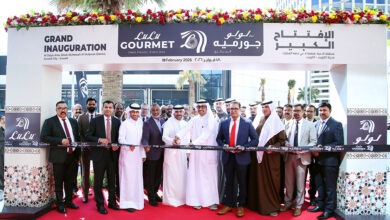“Commerce Minister” highlights strategic supply centers strengthen Kuwait’s food security

The Minister of Commerce and Industry, Khalifa Al-Ajeel, stressed that the strategic supply centers project plays a crucial role in enhancing food security in the country.
The project aims to establish supply centers with greater storage capacity and space, allowing for better display of food supplies, while also improving the services provided to citizens.
Al-Ajeel explained that the project aims to improve storage efficiency and achieve several key objectives, including the design of modern supply centers and the enhancement of food supply services.
The project includes; the addition of new services and the development of electronic applications, such as food delivery services to the homes of those in need. These efforts are designed to ensure the comfort and well-being of citizens, as part of the Council of Ministers’ ongoing commitment to supporting the public.
Al-Ajeel added that the project aims to improve services for more than 70,000 beneficiaries in each supply center, thereby enhancing the effectiveness of food support. The storage areas for each center range between 500 and 1,000 square meters, providing sufficient capacity to meet the needs of citizens.
Rehabilitation
Al-Ajeel stated that there are currently 92 supply center branches distributed across 6 Governorates, with Hawalli Governorate having the largest number of branches, totaling 29.
Importantly, Al-Ajeel mentioned that most of the branches require rehabilitation, particularly because their current areas are small and the buildings and equipment are outdated. These challenges need to be addressed, especially in terms of the limited storage capacity.
Al-Ajeel stated that the project will focus on developing 60 centers with innovative designs, along with enhancing food supply services, adding new services, and improving the food supply system. He also pointed out that efforts are underway to “Kuwaitize” the employees responsible for managing and operating the centers, with the involvement of Ministry of Commerce staff.
Furthermore, Al-Ajeel highlighted the Ministry’s cooperation with several government agencies to launch the project, in line with the assignment decision issued by the Council of Ministers (No. 1259 of 2022). He emphasized the project’s importance in addressing food crises, ensuring the provision of basic supplies to citizens, improving storage efficiency, increasing storage effectiveness, and reducing waste.
Improve Services
The Undersecretary of the Ministry of Commerce and Industry, Ziad Abdullah Al-Najem, emphasized the project’s importance in improving services for those entitled to them at all supply centers. He highlighted that the project contributes to enhancing food security, increasing storage spaces, and providing sufficient capacity to meet the needs of citizens.
Al-Najem added that the project schedule began last year, with the ministry coordinating with relevant authorities on allocation and initial design. This year, the ministry will complete the allocation and finalize the first center. In 2026, the project will be launched through the Ministry of Works, and the actual operation is expected to begin in 2027.
Regarding government approvals, Al-Najem explained that the Kuwait Municipality has approved four sites in Al-Adan, Mubarak Al-Kabeer, Al-Oyoun, and Al-Omariya.
Additionally, the Municipal Council has approved two sites in the Al-Adan and Mubarak Al-Kabeer areas, and is awaiting the approval of the Municipal Council for the Al-Oyoun and Al-Omariya areas.
Al-Najem pointed out that the Public Authority for Housing Welfare has approved 9 sites for residential areas under construction in Al-Mutlaa, Jaber Al-Ahmad, Sabah Al-Ahmad, Abdullah Al-Mubarak, South Saad Al-Abdullah, and South Sabah Al-Ahmad.
Moreover, Al-Najem stated that each new food center will consist of a three-storey building, featuring administrative offices to improve communication and manage operations.
These buildings will also include larger, updated storage areas for each food item, enabling effective resource management and enhancing the centers’ ability to meet the needs of citizens.
Al-Najem stated that 1,000 square meters of parking spaces will be allocated at each supply center, along with suitable entrances and exits for unloading food supplies.
Source: Al Rai












